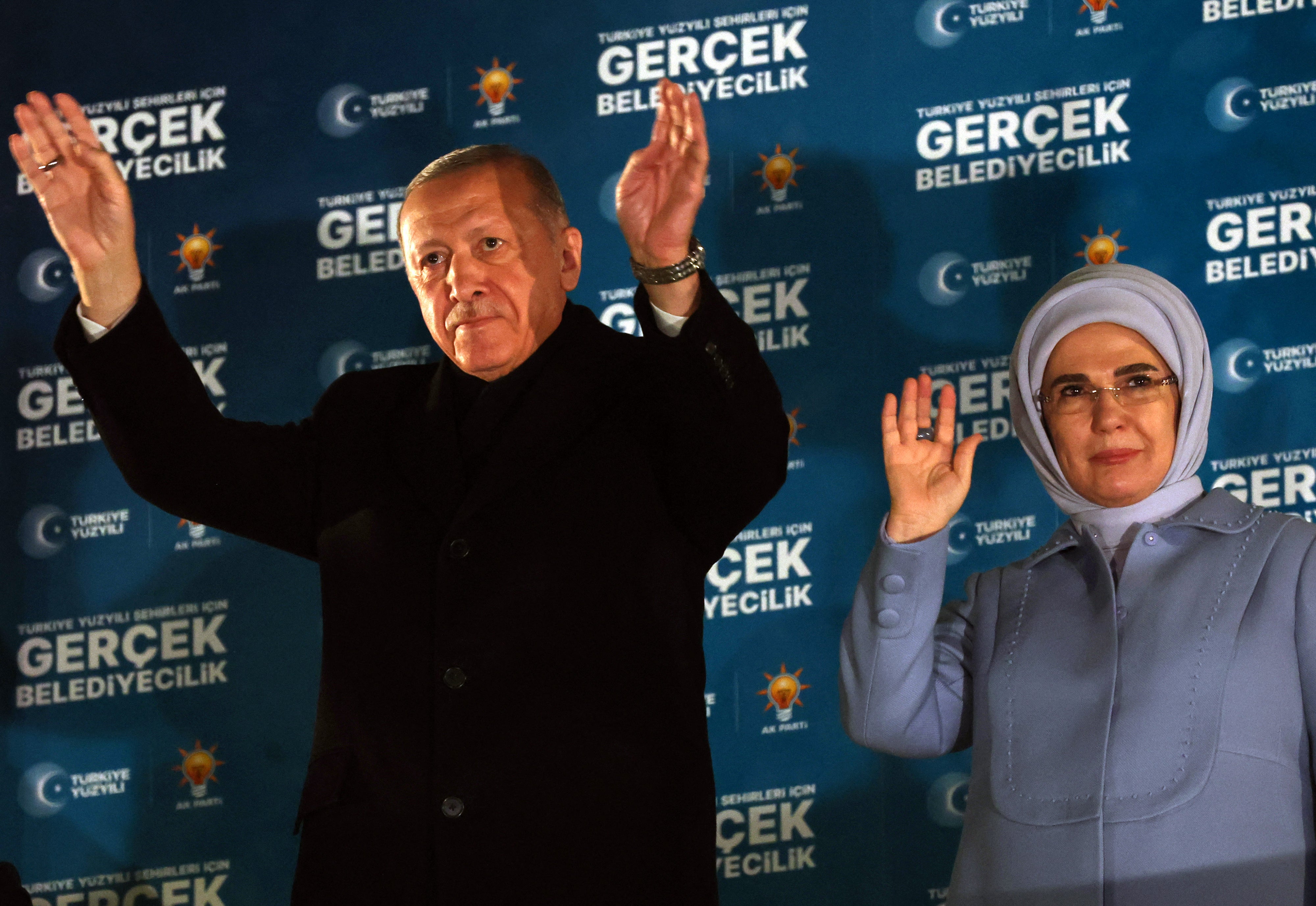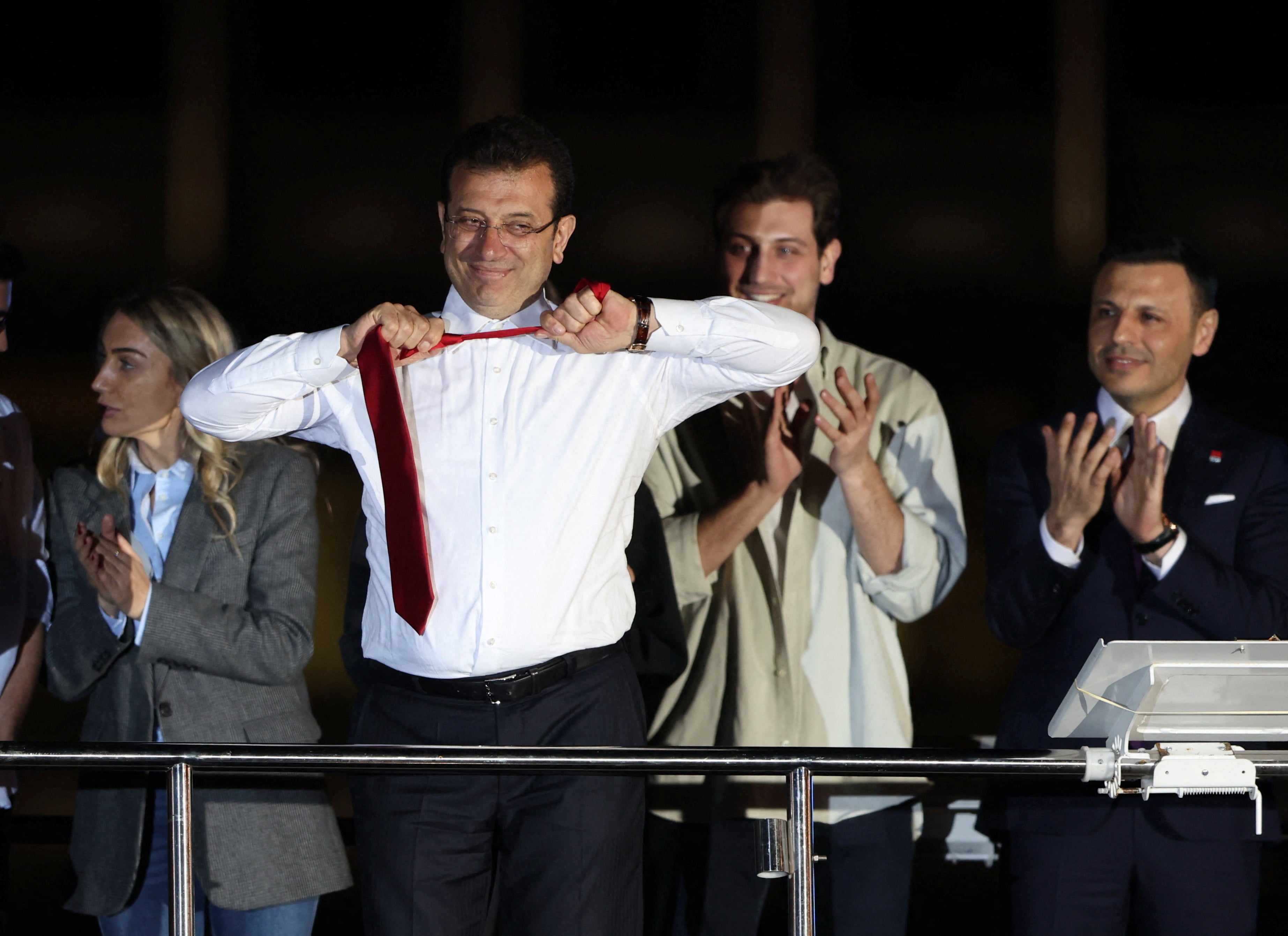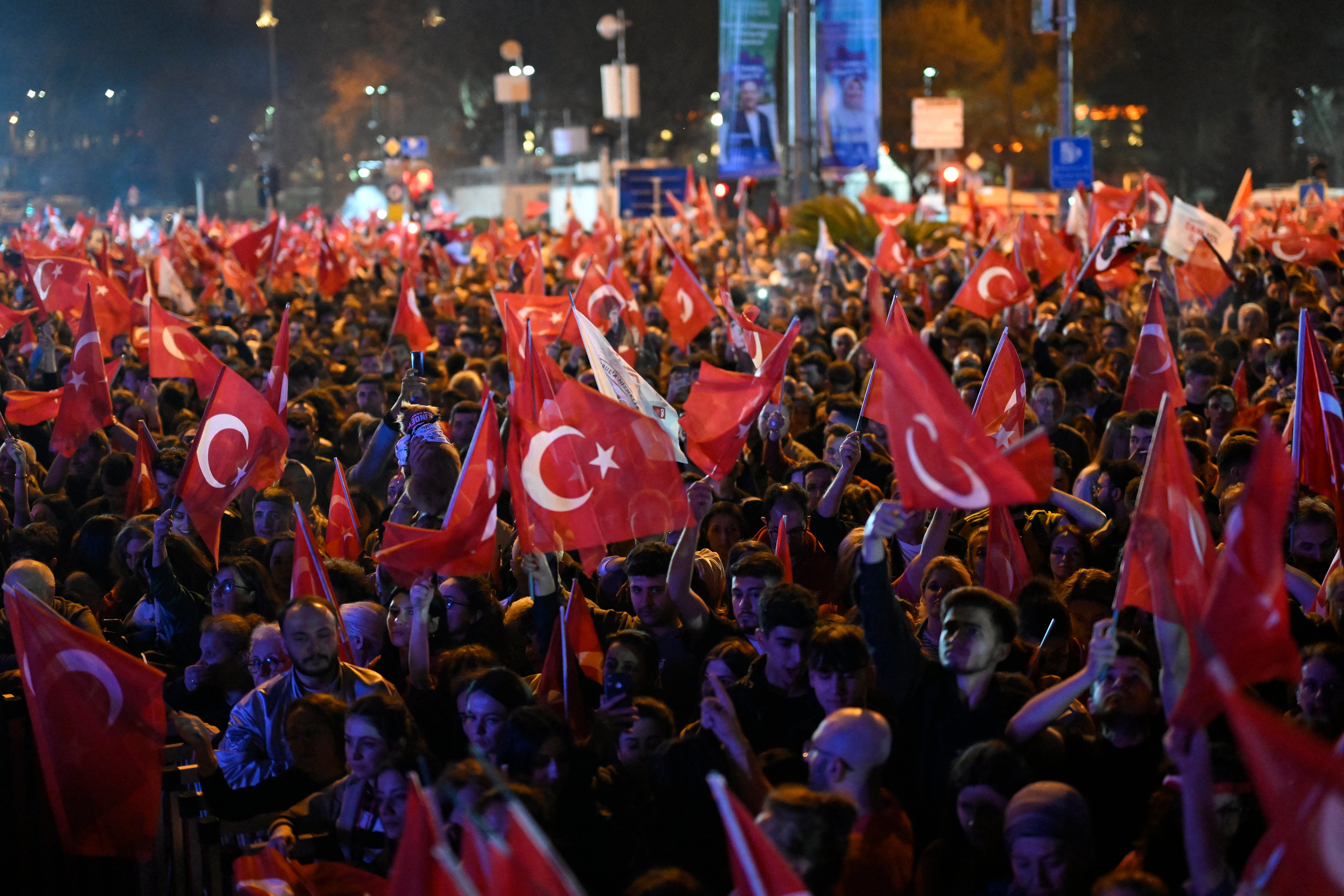Erdogan suffers heavy defeat in Turkey’s key local elections
Istanbul mayor Ekrem Imamoğlu cement’s position as main challenger to president Recep Tayyip Erdoğan
Your support helps us to tell the story
This election is still a dead heat, according to most polls. In a fight with such wafer-thin margins, we need reporters on the ground talking to the people Trump and Harris are courting. Your support allows us to keep sending journalists to the story.
The Independent is trusted by 27 million Americans from across the entire political spectrum every month. Unlike many other quality news outlets, we choose not to lock you out of our reporting and analysis with paywalls. But quality journalism must still be paid for.
Help us keep bring these critical stories to light. Your support makes all the difference.
Turkey’s main opposition party has secured a sweeping victory in local elections, dealing a serious setback to Recep Tayyip Erdoğan’s two-decade grip on power and signalling a change in the country’s political landscape.
The opposition candidate, Ekrem Imamoğlu, clinched a second term as Istanbul’s mayor despite Erdogan’s concerted effort to unseat him and, in the process, cemented his position as the president’s main challenger.
“My dear Istanbulites, you opened the door to a new future today,” Mr Imamoğlu said addressing the overjoyed supporters of his Republican People’s Party (CHP).
“Starting from tomorrow, Turkey will be a different Turkey. You opened the door to the rise of democracy, equality and freedom …You ignited hope at the ballot box.”
Mr Imamoğlu won more than 50 per cent of the vote in the mayoral contest in Istanbul, a city of 16 million people, while CHP successfully defended Ankara and secured victories in 15 additional mayoral races across the country.
It was the worst defeat for the Turkish president since coming to power 21 years ago.
In a sombre address to a restrained gathering outside his party’s headquarters in Ankara, Mr Erdoğan commended the electoral process and said it would mark "not an end for us but rather a turning point".

“Unfortunately, we couldn’t get the result we wanted in local elections,” he said. “Everything happens for a reason. We will rebuild trust in places where our nation has chosen someone else.”
Mr Erdoğan’s ruling Justice and Development Party (AKP), battling surging inflation and dissatisfied Islamist voters, performed below expectations outlined by opinion polls. It’s a point that Mr Imamoğlu made sure to drive home in his address.
"Tonight, 16 million Istanbul citizens sent a message to both our rivals and the president," said Mr Imamoğlu, a former businessman who entered politics in 2008 and is now widely touted as a likely presidential challenger.

In Ankara, CHP mayor Mansur Yavas was leading ahead of his AKP rival with 59 per cent of the vote and declared victory in a speech to thousands of cheering supporters.
Supporters of CHP blocked roads in several cities in celebration, waving flags as drivers honked car horns.
Mert Arslanalp, assistant professor of political science at Istanbul’s Bogazici University, said it was Mr Erdoğan’s "severest election defeat" since coming to power in 2002.
"Imamoğlu demonstrated he could reach across the deep sociopolitical divisions that define Turkey’s opposition electorate even without their institutional support," he said. "This makes him the most politically competitive rival to Erdogan‘s regime."
With 92.92 per cent of ballot boxes opened in Istanbul, Europe’s largest city and Turkey’s economic engine, Mr Imamoğlu had secured 50.92 per cent of the vote as against 40.05 per cent for AKP challenger Murat Kurum, a former minister in Mr Erdoğan’s national government.

In 2019, Mr Imamoğlu first dealt an electoral blow to Mr Erdoğan after he first won Istanbul, ending the president’s 25-year reign in the city. CHP also won the capital city of Ankara that year.
However, in 2023, the president won reelection and secured a parliamentary majority alongside his nationalist allies, despite enduring a prolonged cost-of-living crisis.
This time, analysts said the economic strain, not least nearly 70 per cent inflation and a slowdown in growth brought on by an aggressive monetary-tightening regime, moved voters to punish AKP.
Additional reporting by agencies
Subscribe to Independent Premium to bookmark this article
Want to bookmark your favourite articles and stories to read or reference later? Start your Independent Premium subscription today.

Join our commenting forum
Join thought-provoking conversations, follow other Independent readers and see their replies
Comments